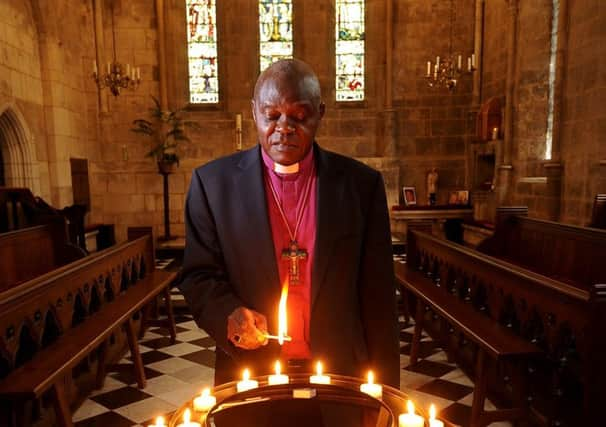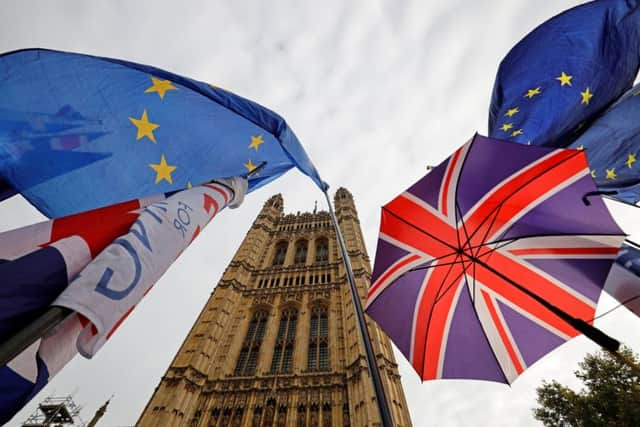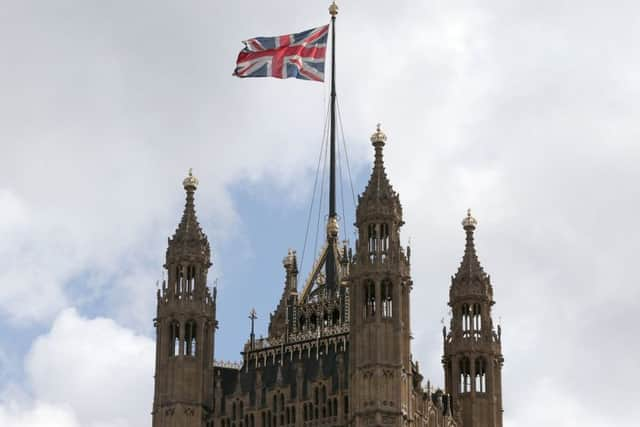Please stop Brexit pointscoring and show ‘unusual kindness’ so we can unite the country – Archbishop of York


The prayers underscored the wisdom that Christian unity will be discovered not only through showing hospitality to one another across denominations, but also through loving encounters with those who do not share our language, culture or faith.
Advertisement
Hide AdAdvertisement
Hide AdTwelve years ago, during the week of Prayer for Christian Unity, I spent time in Rome praying with Pope Benedict XVI that Jesus’ hope that all His followers would be one would become a reality.


Over the years these weeks have not yet achieved the ultimate aim of removing our denominational divisions but they have provided a common time together when we recognise, as churches, that there is much more that unites us than divides us.
Advertisement
Hide AdAdvertisement
Hide AdBut this message of reconciliation is not for the Church alone. The very continuing divisions in our country exposed by the Brexit debate highlight the need for us to find grounds to move forward together under a common narrative and shared hope, discovering the wellsprings of solidarity.


To use the old algebraic formulae – we need to move away from seeking the lowest common denominator in our national conversation and move towards rediscovering our highest common factor – although the lowest denominator is a high number.
We need to work actively and intentionally towards reconciliation and common purposes. This will inevitably be a long and bumpy journey – but it’s one worth taking, which for me begins with three steps.
Advertisement
Hide AdAdvertisement
Hide AdThe first means accepting that the Brexit debate is over. We are leaving the European Union and the next decade needs to move on from whether we do it to how we do it in a way that least hurts our communities and opens up opportunity for all.
Of course this will mean debates continue on how best to achieve both these things but we must now, Remainers and Leavers alike, recognise that our common aim is to secure the best future for us all outside the EU rather than as part of it, without fouling our neighbours’ pitch.
Secondly is how we conduct these debates. Moving forward together means respecting there is room for people to change their minds and do so without recrimination. How people voted in the past should not determine how we listen to them or value their opinions.
St Augustine of Hippo famously remarked: “Every saint has a past and every sinner has a future”. We need to be magnanimous and leave room for people to articulate their future hopes without embarking on archaeological digs into how they expressed their views in the past.
Advertisement
Hide AdAdvertisement
Hide AdThirdly, and perhaps most importantly, we need to stop point-scoring and listen to one another with humility, civility and kindness so as to create space for the kind of civil discourse that will give birth to a promising future rather than a haunted past.
This is where the “unusual kindness” of hospitality can be a radical and life-giving alternative to the continuing discourse of “othering”.
We need to rediscover afresh seeing the divine spark at work in those with whom we disagree rather than lumping them together under the most offensive label we can find so we can feel a dishonest virtue in our disputations with them. At different periods in a nation’s history, there will be times when ideologies give birth to pragmatism so that the country can come together.
At its best ideology and pragmatism combine to define a nation, such as when this country – in our four nations – came together during and after the Second World War.
Advertisement
Hide AdAdvertisement
Hide AdAt that time the combination of an ideological stance against the Nazis combined with the pragmatism of rationing and post-war mutual resourcing and sharing drew out the best of what our nation could be when faced with the greatest of challenges.
Wisely, the Government borrowed large sums of money which were finally paid off 60 years later and thereby avoided repeating the unwise economic error of austerity in the 1930s – but sadly this has been repeated in the past 10 years.
The debate of the past few years has highlighted there is no such common ideology over Brexit. What remains is the pragmatism to see this through and come to a place where our common cause in that which we share together triumphs over that which divides us.
Decades ago, in 1963, John F Kennedy spoke about a commonality that transcended ideology. Speaking in the midst of the Cold War he delivered an address at the American University which included a quote from the King James version of the Book of Proverbs: “When a man’s way pleases the Lord, he maketh even his enemies to be at peace with him.”
Advertisement
Hide AdAdvertisement
Hide AdPresident Kennedy continued with an appeal to the Soviet Union which sought to reach beyond ideological divides and establish common cause: “For, in the final analysis, our most basic common link is that we all inhabit this small planet. We all breathe the same air. We all cherish our children’s future. And we are all mortal.”
We have so much to be thankful for in this country. We share together in gratitude for a democracy that gives us freedom, a health service that sustains our lives, a monarch who exemplifies a joyful sense of duty, the Rule of Law which provides us safety and a love of neighbour which has served as a bedrock in times of challenge, as well as joy.
These are the foundations on which we build our future together. May God in his mercy cast out in us the hurdles of fear, godlessness, sin and love of money and help us to rise to a common future built on truth, justice, peace, compassion, friendliness and joy, both to God’s glory and that of the nation we build together.
Dr John Sentamu is the Archbishop of York.